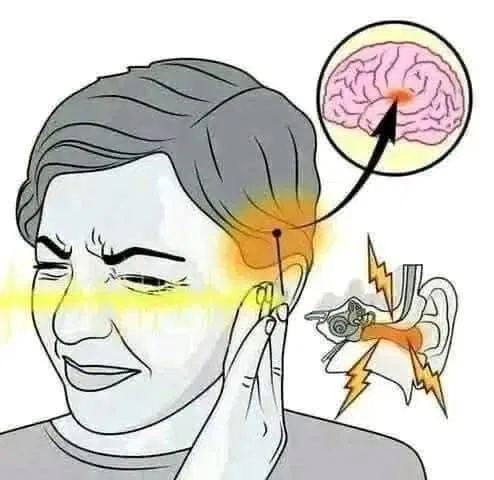
Tinnitus is a common condition characterized by the perception of sound, such as ringing, buzzing, or hissing, in the absence of an external source. While not a disease itself, tinnitus often signals an underlying issue within the auditory system or related structures. Understanding its causes and effects is crucial for effective management and relief.
Understanding Tinnitus
Tinnitus manifests as a persistent noise perceived in one or both ears or in the head. The sounds can vary in pitch and may be continuous or intermittent. For some, tinnitus is a minor annoyance; for others, it significantly impacts quality of life, leading to difficulties in concentration, sleep disturbances, and emotional distress.
Common Causes of Tinnitus
1. Ear Damage
The ear comprises three sections: the outer ear (auricle and ear canal), the middle ear (eardrum and ossicles), and the inner ear (cochlea and auditory nerve). Damage to the middle or inner ear can disrupt the transmission of sound signals to the brain, leading to tinnitus. Conditions such as otosclerosis (abnormal bone growth in the middle ear) or acoustic neuromas (benign tumors on the auditory nerve) can also cause persistent ringing.
2. Prolonged Exposure to Loud Noise
Extended exposure to high-decibel environments can damage the delicate hair cells in the inner ear, leading to noise-induced hearing loss and tinnitus. Individuals at risk include:
-
Workers operating heavy machinery
-
Musicians and frequent concertgoers
-
Individuals who listen to loud music through headphones for extended periods
3. Medication-Induced Tinnitus
Certain medications are known to have ototoxic effects, potentially causing or exacerbating tinnitus. These include:
-
High doses of aspirin
-
Certain antibiotics (e.g., aminoglycosides)
-
Some diuretics and antidepressants
It’s essential to consult a healthcare provider before making any changes to medication regimens.
4. Temporomandibular Joint (TMJ) Disorders
The TMJ connects the jawbone to the skull. Disorders affecting this joint, such as misalignment, teeth grinding (bruxism), or inflammation, can contribute to tinnitus symptoms. Addressing TMJ issues through dental interventions or physical therapy may alleviate associated tinnitus.
The Impact of Tinnitus
Beyond the auditory symptoms, tinnitus can have profound psychological and emotional effects. Chronic tinnitus may lead to:
-
Sleep disturbances
-
Difficulty concentrating
-
Increased stress and anxiety
-
Depression
These impacts underscore the importance of a comprehensive approach to tinnitus management, addressing both the physical and emotional aspects of the condition.
Seeking Relief and Management Strategies
While there is no universal cure for tinnitus, various strategies can help manage symptoms:
-
Sound Therapy: Using background noise or white noise machines to mask tinnitus sounds.
-
Cognitive Behavioral Therapy (CBT): A form of counseling that helps change negative thought patterns associated with tinnitus.
-
Hearing Aids: Beneficial for those with hearing loss, amplifying external sounds to reduce the perception of tinnitus.
-
Lifestyle Modifications: Reducing exposure to loud noises, managing stress, and avoiding stimulants like caffeine can mitigate symptoms.
Consulting with audiologists or otolaryngologists (ENT specialists) is crucial for personalized treatment plans.
Conclusion
Tinnitus is a multifaceted condition with various potential causes and significant impacts on individuals’ lives. Understanding its origins—from ear damage and noise exposure to medication effects and TMJ disorders—is the first step toward effective management. By seeking professional guidance and adopting appropriate coping strategies, individuals can find relief and improve their quality of life despite the challenges tinnitus may present.





